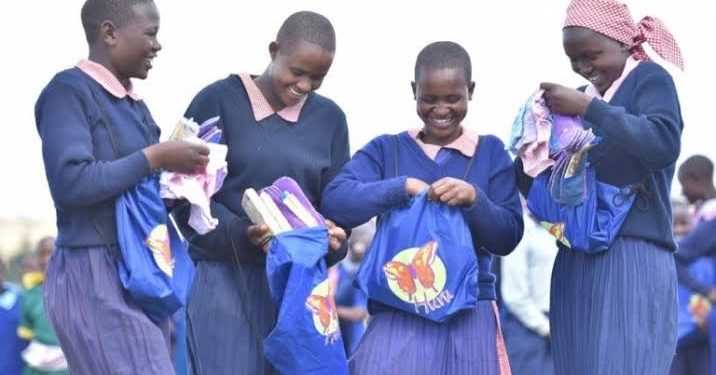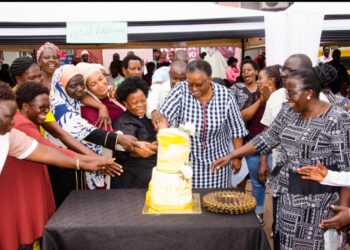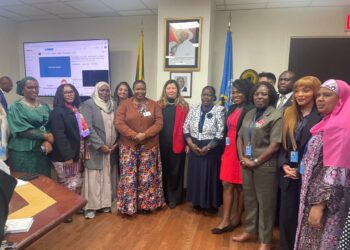By Felix Omara
A complete lack of sanitary pads forced Sarah Naudo, 16, to use pieces of paper from her note books instead of sanitary pads, when she started menstruating in 2019.
“It was a trying time because I had no money to buy pads as concealment to the menstrual flow. You know it [the menstrual blood] overflows when you have no protection, leaving you in a mess,” said Naudo. “Other pupils would bull me, saying I am funny and made me feel bad.”
Naudo, from Sinde village in Namayingo district dropped out of school and currently has a seven months old baby girl at the age of 18.
Ludovic Bwire, the LC one chairman, Namanvundu village, in Namayingo told members of the LC 3 council that more than 61 girls have so far left the school this year alone due to lack of sanitary pads. He noted that most of the girls are married off, after dropping out of school to elderly men in rural areas.
He however explained that many parents still marry their daughters at a tender age in order to get bride wealth.
Bwire, said the number of school dropout is bound to rise for as long as it takes the parents to understand the value of education for their daughters.
According to a 2020 ‘menstrual health’ report by Rwenzori Network for Sanitation at least 14 girls on average from the districts of Rwenzori sub region drop out of school every month because of inadequate toilets according to a report by the.
The researchers found out that from May 2019 to June 2020, an average of 211 girls in the districts of Rwenzori sub region had dropped out of school without pads. Majority of these are girls in secondary schools, who have reached puberty stage.
The report also states that absenteeism among the girls is high especially when they approach their menstruation cycles, since they do not adequate facilities to use during the menstrual days.
This year’s world menstrual day on May 28th 2021, that starts a week celebrating menstrual health “Action and Investment in Menstrual Hygiene and Health.”
According a report done by Twaweza East Africa in Uganda in 2020, there is an increase in the number of people washing their hands oscillating between 49% and 84% after using the toilet, before and after eating, when they look or feel dirty and when they come back home.
The study done between July 6 and August 4, 2020, said that eight out of ten households (88%) reported having handwashing facilities at their entry points and near their toilets and almost as many (83%) said they have soap there. But the increase in washing has not positively affected girls during their menstrual cycle.
The senior program officer, Twaweza, Marie Nanyanzi, argues that whereas improved access to piped water and behavioral change in sanitation is plausible more work needs to be done to ensure the progress is made as regards sanitation for girls who undergo menstruation.
Besides a lack of sanitary pads, few or no private toilet facilities for girls as well as a shortage of female teachers contribute to adolescent girls’ absenteeism from school.
According to the Ministry of Water and Environment (MWE) 2020 sector performance report the use of safely managed sanitation in rural areas remains at a low 7.1% and in urban areas 38.9%. This affects girls without menstrual pads, who wish to clean themselves during menstruation periods.
In Lira district Grace Atim, Senior district Health Educator says, efforts are under way to improve girls’ retention in primary and secondary schools by, for instance, “supporting children to make sanitary towels, access to clean water and sensitizing the community courtesy of Reproductive Health Uganda (RHU) on the need to provide pads, water and counselling to girls”, Atim, told Watchdog News.
“with availability of clean water, the reusable sanitary pads are easy to use because they can be washed and used over and over. They can last several months, saving parents their meagre income.”
Locally, shops sell a pack of sanitary pads that cost on average 3,500 Ugandan shillings which most parents and students cannot afford to buy for themselves and most families in northern Uganda.
Do you have a story in your community or an opinion to share with us: Email us at editorial@watchdoguganda.com













